Bonjour lecteurs! As you may know, I love doing extra reading and writing with Stanley. For me, it is très important to support him with communication skills and our story time is a sacred routine. From a very young age, we had nice bedtime routines with a book. Nowadays, we also enjoy a story every morning during breakfast. Struggling to make reading and writing a habit in your day? Here are a few simple steps on How to Help Your Kid Develop Creativity And Writing Skills.
Read Every Day!
Before moving on to créativité and writing, reading is the first step to making our children confident writers.
Make it part of your daily routines, whenever it works better for you.
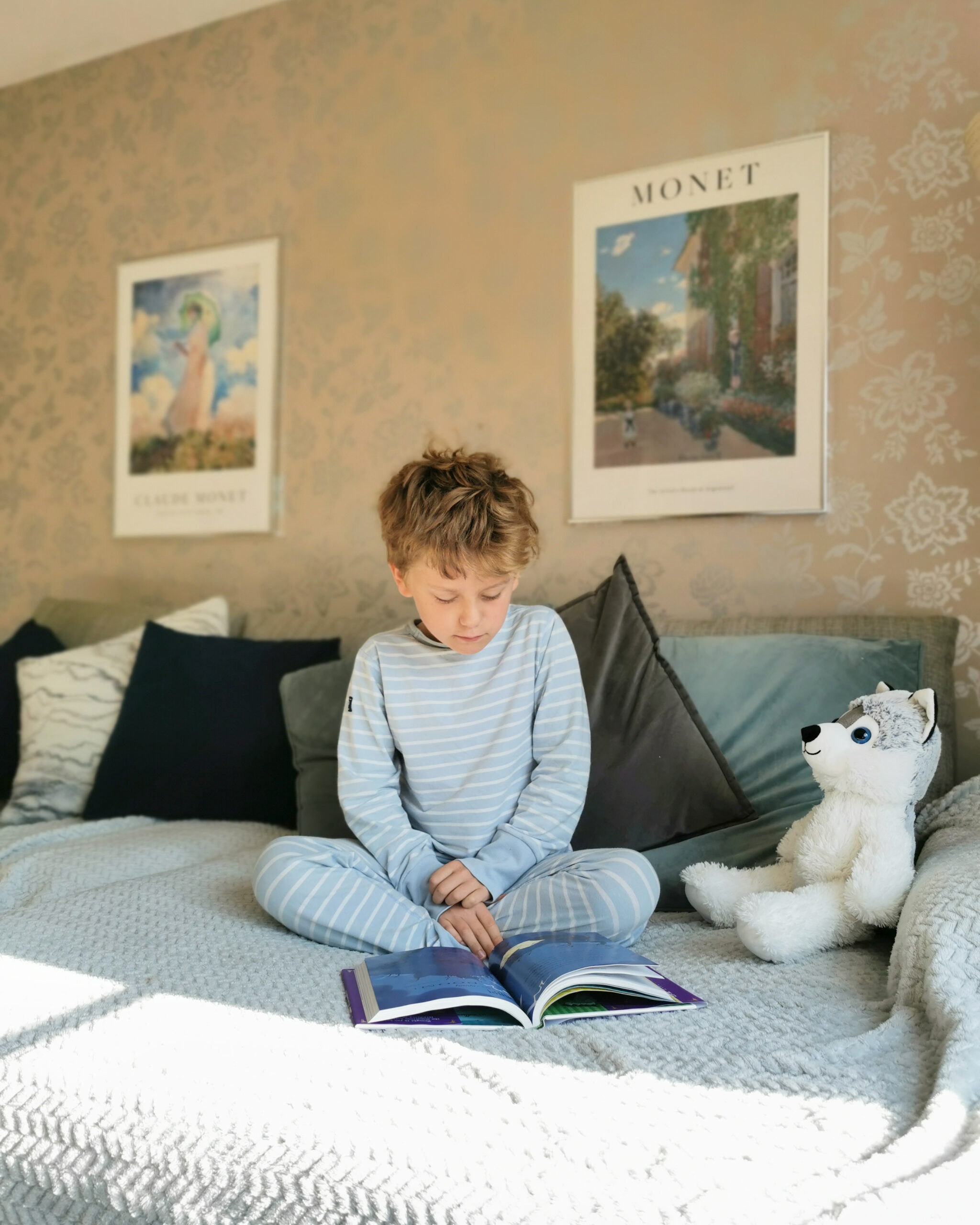
It will develop their language and vocabulary. Every time you come across a new word, teach them the definition and try to incorporate them in another context.
Start With The Basics
From a very young age, I used a lot of resources for Stanley to practise writing. The connect-the-dots game was one of the first ones we used.
Later on, we moved on lines of letters to practice.
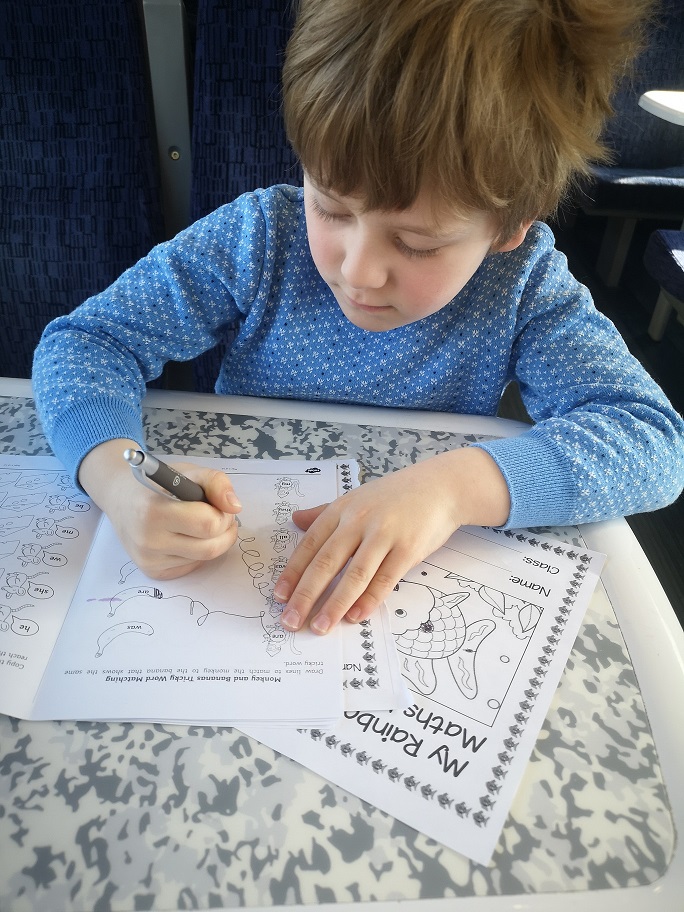
I am not sure about you, but our school decided to teach them cursive writing. It was a bit hard at first, especially when he started in reception. But I can see now that Stanley is plus confiant at forming letters.
Practise Makes Everything Better
From forming letters to short words, move it up to longer words and short sentences.
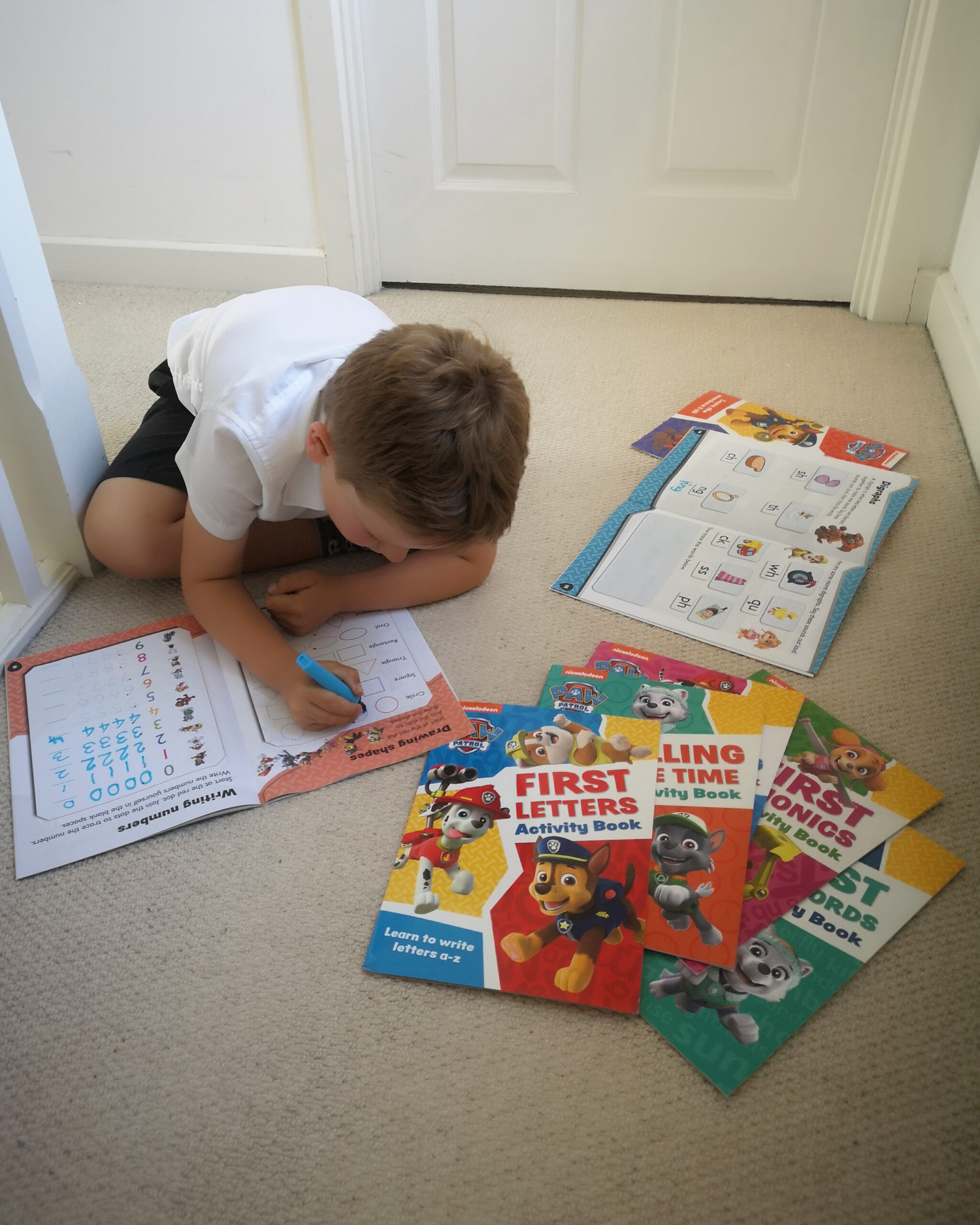
To practise spelling, it is good to use drilling: do it again and again in different formats.
We used a lot of apps like Reading Eggs where he would form letters and words with his fingers before moving onto paper.
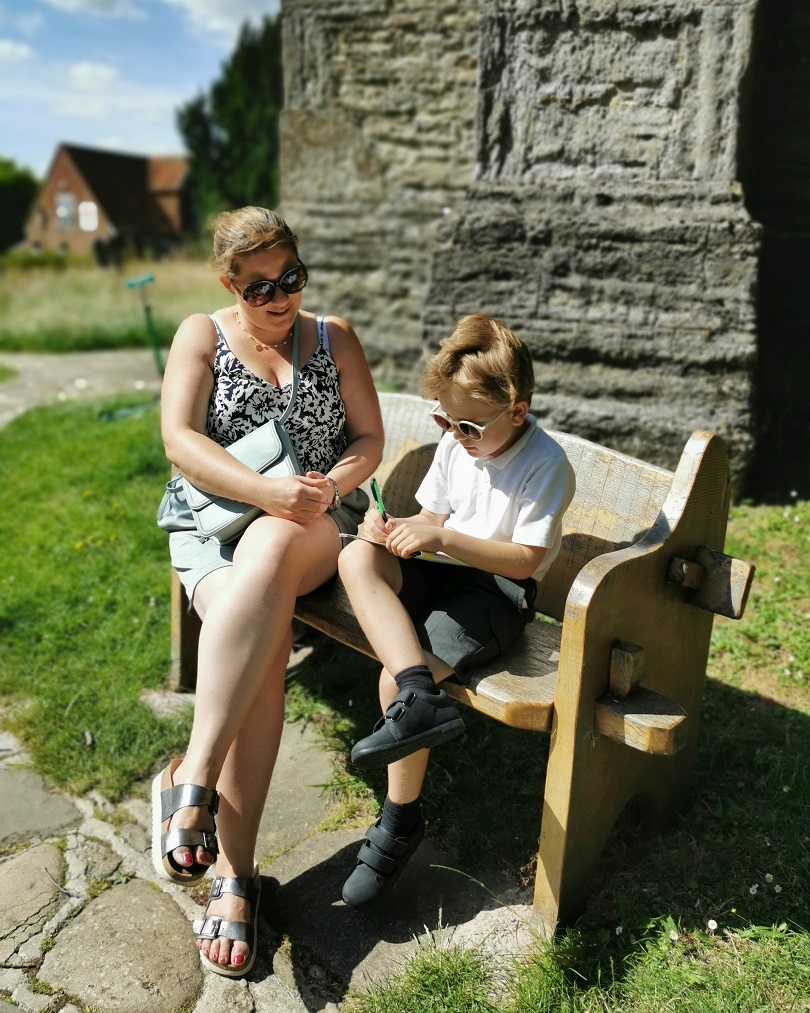
It’s all about the input before they can reproduce independently words.
Nowadays, we are using a good old lined book. I write a word and he copies them again and again.
Make It Fun & Varied
There are so many ways to practise spelling. We love using all sorts to write: from les classiques pens and pencils, we also love paint brushes, magic pens or chalks.
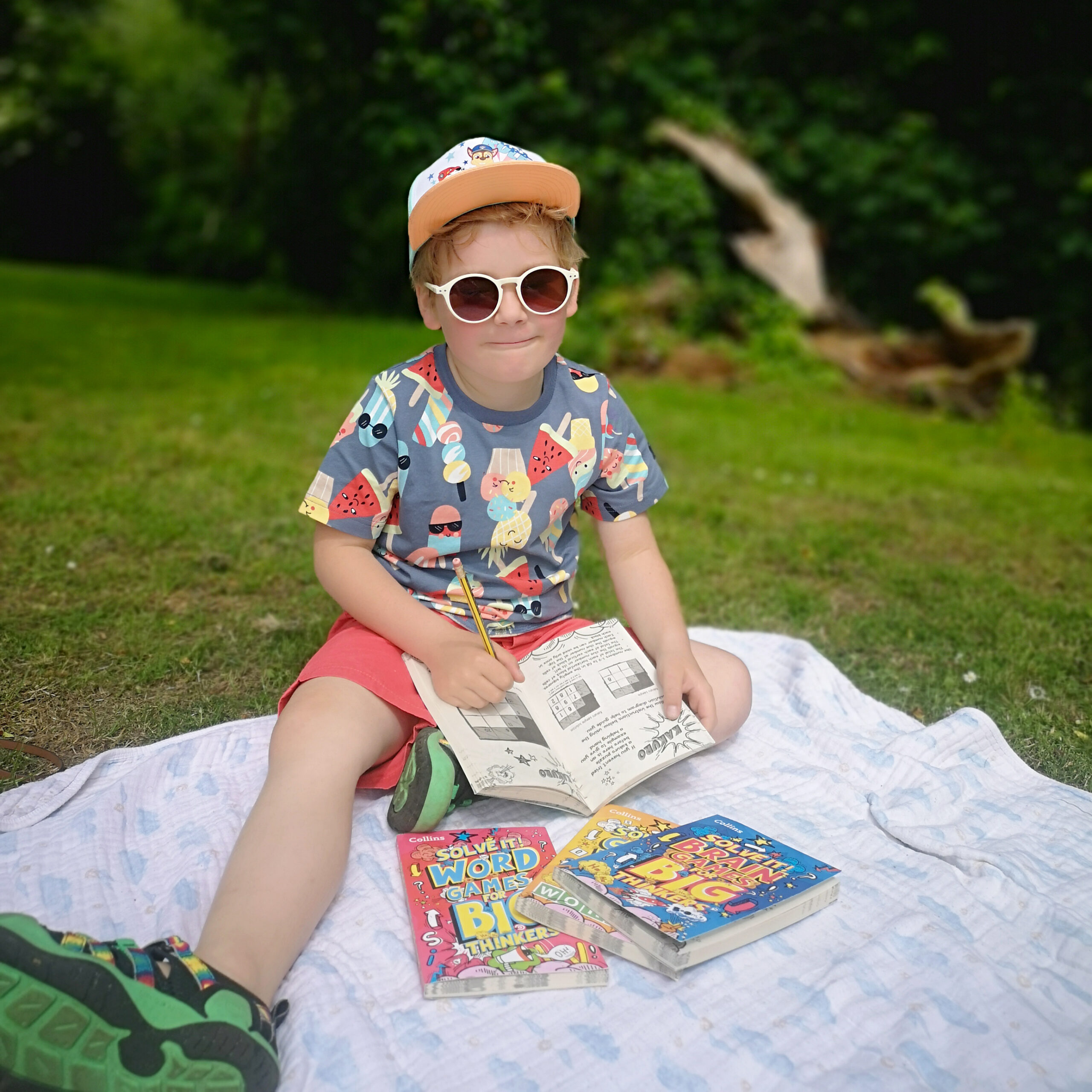
I try to get every opportunités to get him to write and we try to make it fun. It does not have to be compliqué. We don’t need to ask them to write full essays as in mypaperwriter reviews par exemple. He is only 7 after all and we want to take it step by step.
Use a Fun Context To Them
Another way to develop their creativity and writing is to tune in to what they like.
Make it relevant to what they are into. We had Bing Writing Books when he was little.
Now Stanley is a Minecraft fan (who is not at this age…) so when we do our weekly spelling practise, I try to incorporate it.
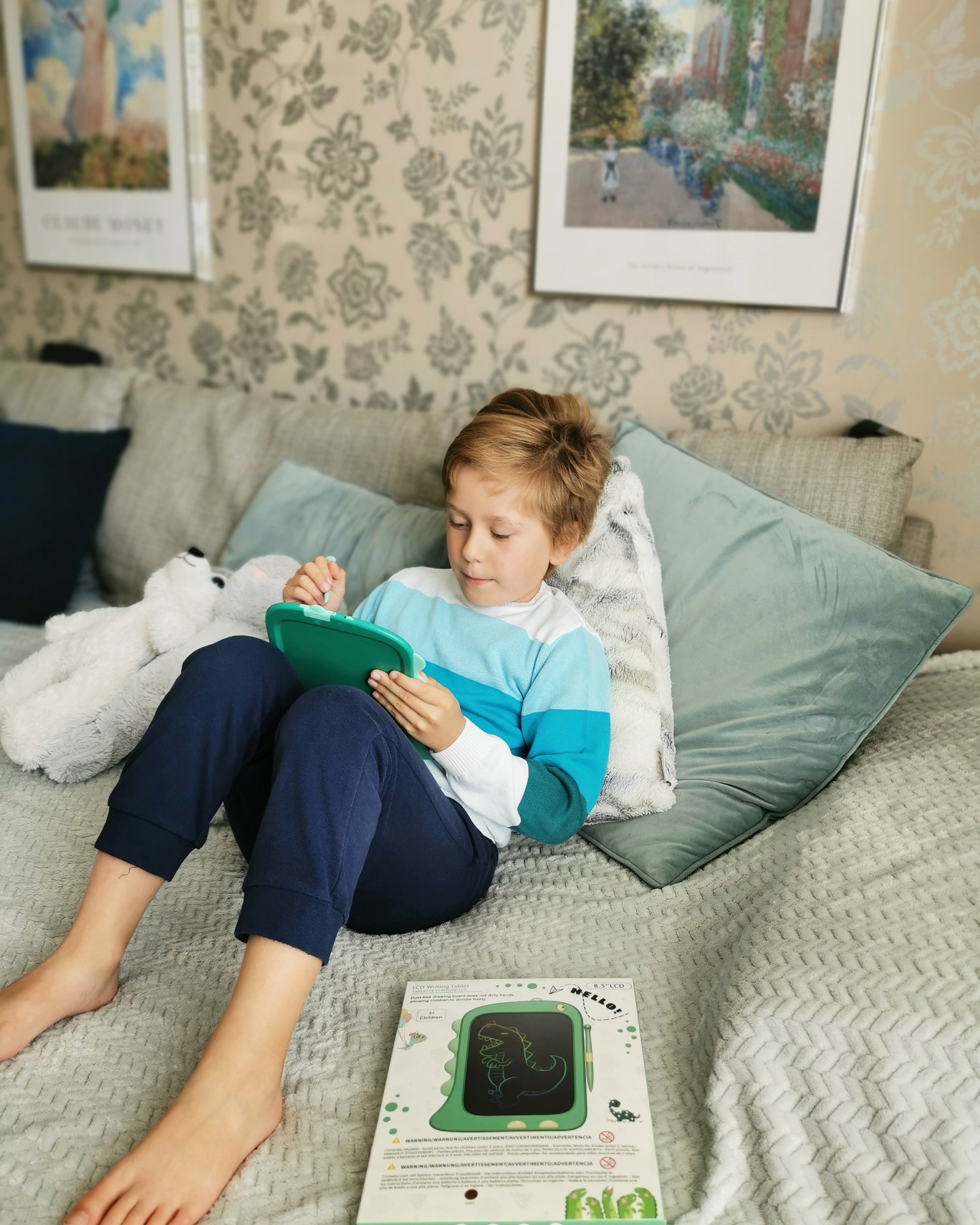
He will use the words to describe something about his favourite video games or TV shows.
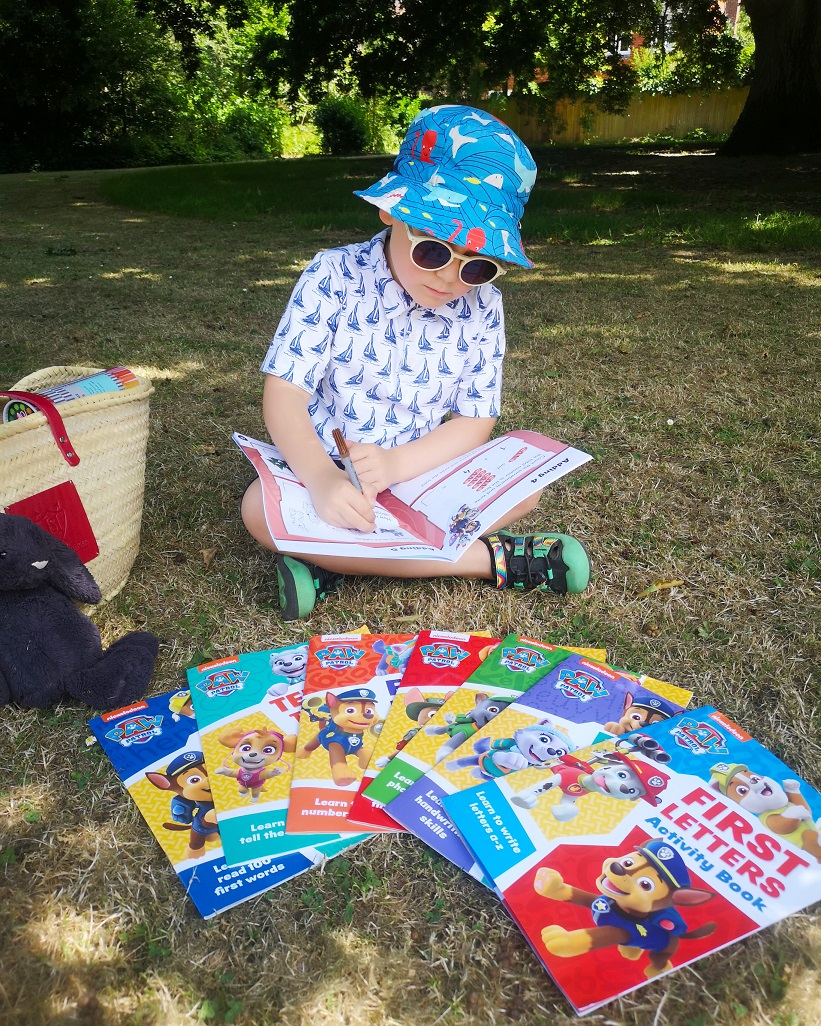
Sometimes, he plays online with his friend and it’s so sweet when he asks me how to spell more complex words to use in the chat. It’s still learning at the end of the day!
Encourage Journalling & Other Projects
Nowadays, it is all about new technologies. I am always so surprise to see how often he uses tablets to learn at school.
But I suppose teachers are preparing them for the modern world. In the future, students will use resources such as essaypro.com review to write essays and more complex text. Everyone will be using mypaperwriter and have an essaypro login. Who knows?
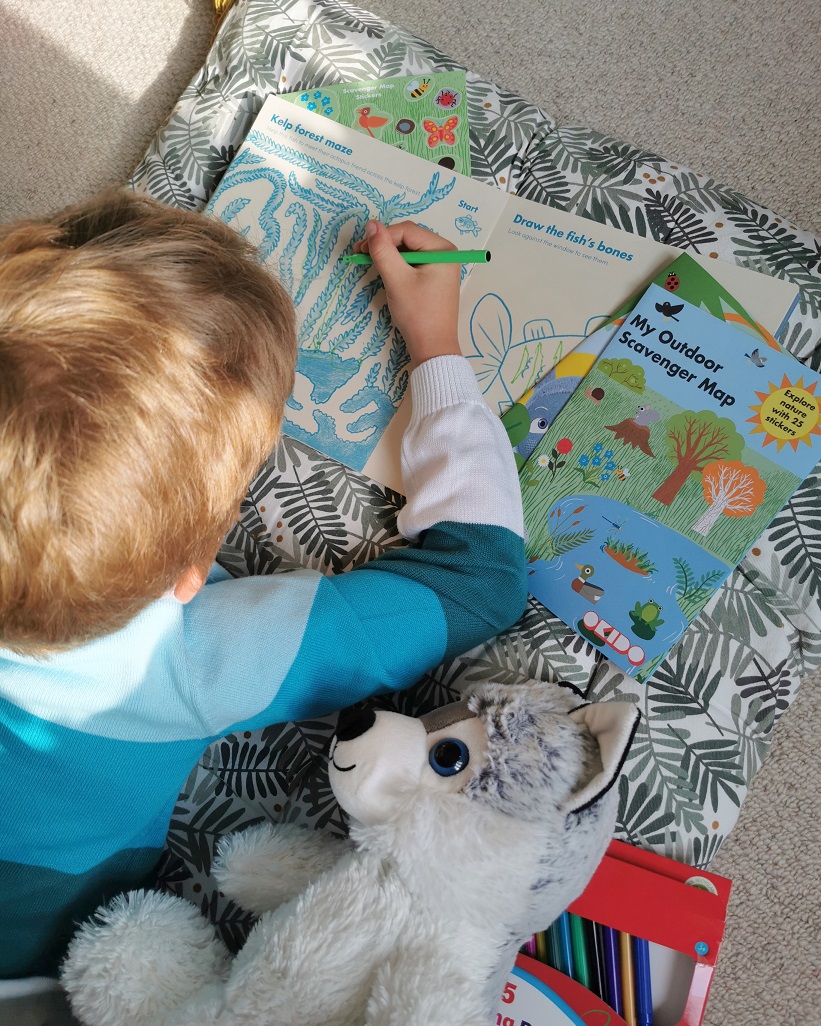
But I encourage him to write as much as he can. He has a small notebook that he uses as a journal. It might be simple sentences describing his day, but it definitely helps develop his creative writing.
Creative Writing in Everyday Life
There are so many other ways to incorporate creative writing into you everyday life:
- free writing for older children
- create lists (asking them to write your shopping list is always fun for younger children)
- write a card to a loved one
- postcards when on holidays
- create their own birthday invitations
- making posters for school or home rules
- use pictures prompts for them to write a short story
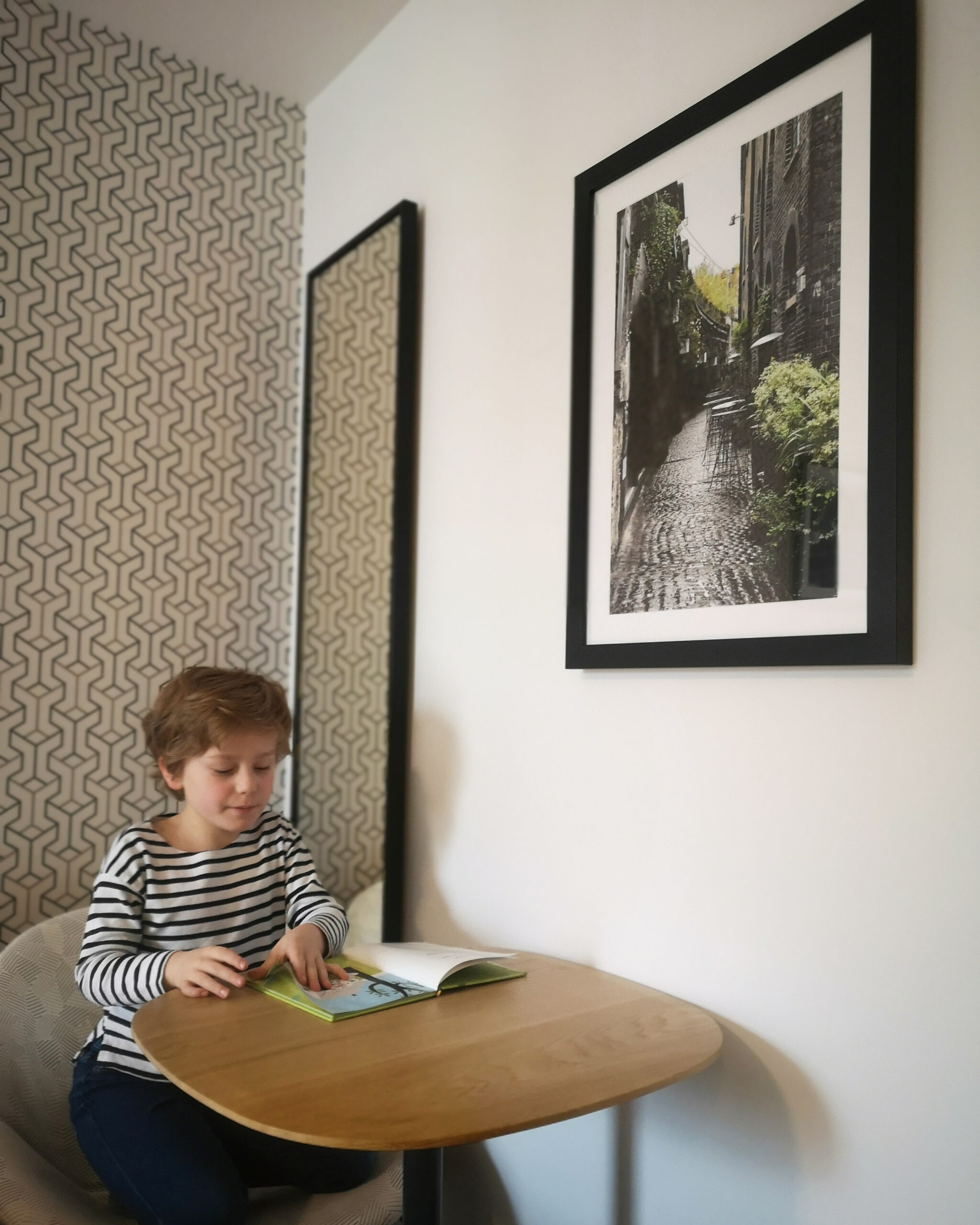
There are so many ways you can incorporate creative writing for children.
Par exemple, we have a nature collection book where we collect all sorts like leaves and other treasures we found during our walks. He would often write a short sentence about what it is, where we find the item etc.
Invest Time & Praise Them
Like any other communication skill, it is all about patience and practice. Spend time each day to do some writing in one way or another.
Help your child and support them with spelling and proofreading.
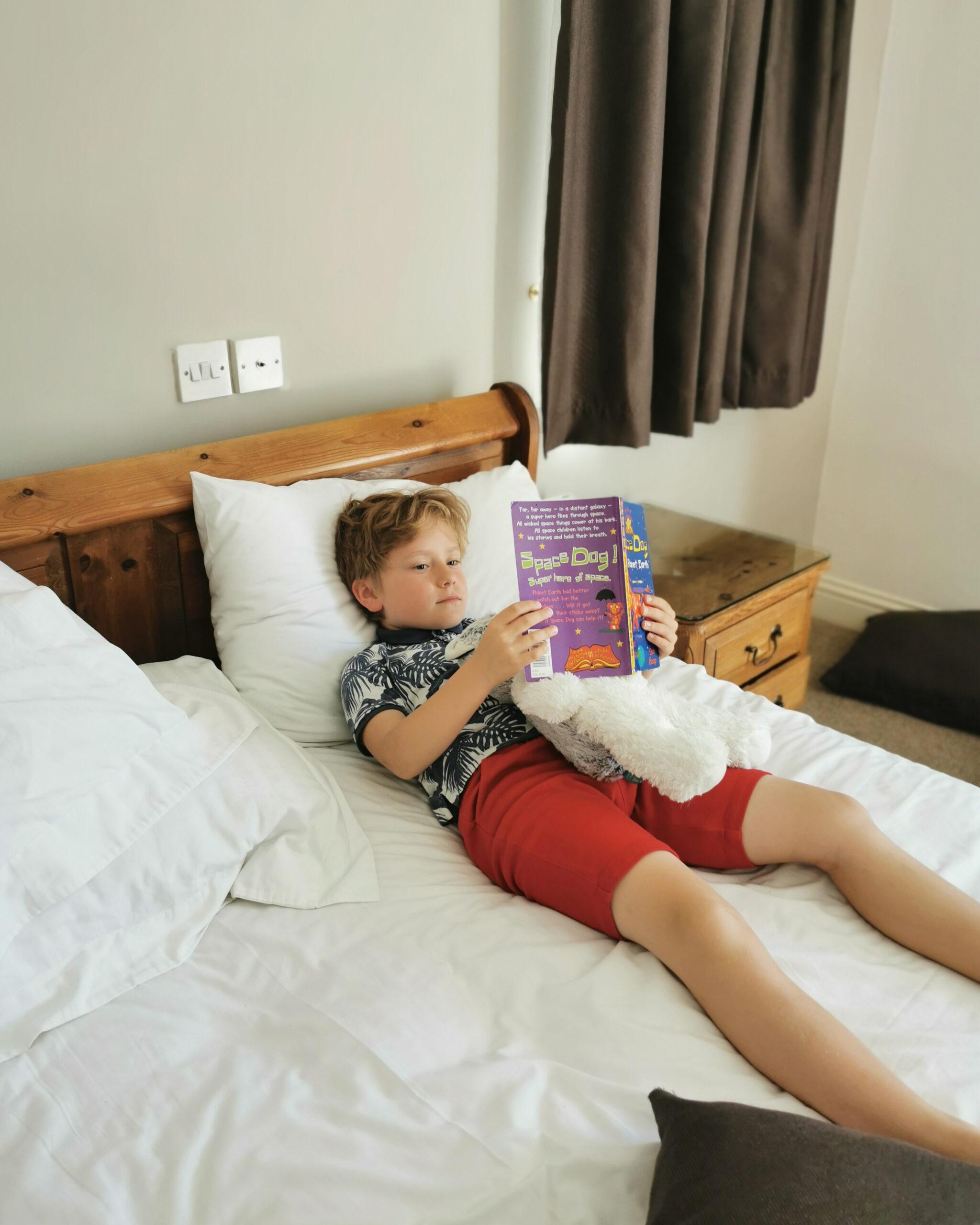
Show interest in their stories by asking questions about the plot, the characters…
And if they bring a good piece from school, praise them.
Practicing writing every day will go a long way to improving kids’ creativity and writing skills. It is all about making it enjoyable and part of your day. So that it doesn’t sound like a task or something boring.
Et voilà! It will be the first and most important part to support them to become successful learners!
Disclosure: This is a sponsored post.
It looks like you do a wonderful job with Stanley! My just turned 6 year old struggles at the moment with not being able to write as well as he can “see” the words in his head so finds it tricky to get started
Yes making writing and reading fun, not making it a chore, is sure to help your child become confident and creative
I used to get my children to create a scrap book diary over the summer holidays, writing about what they had done each day, and adding photos or other momentos
Thank you so much for this article. Coincidence or not, this answered everything I was asking you the other day. We read to our son every day and although the teacher said spelling is not important at the moment if they’re still trying to sound the word, I still would like him to spell it right. So we’re trying different ways to practise his spelling, Doodlespell does cost but the download itself is free. Will definitely look into Spelling Egg. At the moment we found that BBC Bitesize games are pretty good and it’s just on their website
Author
We used to love BBC Bitesize, there are so many good resources there. We also loved Alphablocks 🙂
So important to encourage – thanks for your review
It is such an important way for them to express themselves, use their imagination, have fun, and learn all at the same time
There are an amazing range of great books and other aids to help children to read and these really help to make learning fun!
Lots of great ideas
Great tips! I’m such a massive advocate for reading and listening to books. It widens our vocabulary, understanding of the world around us and teaches so, so much. It’s also an endless source of creativity that can greatly enhance writing.
Investing time praise and encouragement goes a long long way
My eldest has DCD so learning to co-ordinate her hand to make the shapes and letters was really tough. However I totally agree more practice and making it fun is so important as it helped her improve her letter forming so much. She’s 12 now her writing isn’t the neatest. However because of all the practice she has a love of reading and creative writing. She’s even the English lead for showing prospective new high school students the English department.